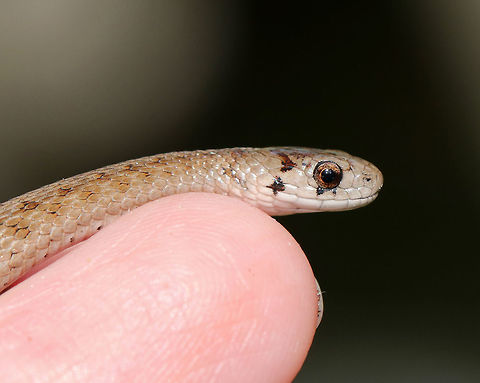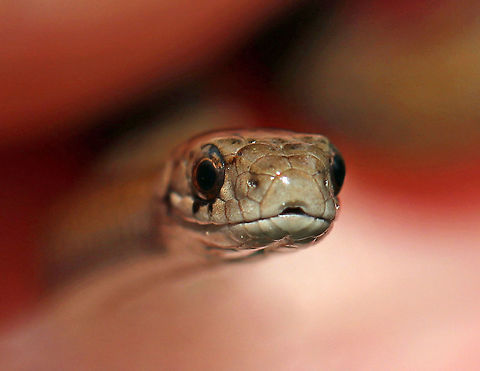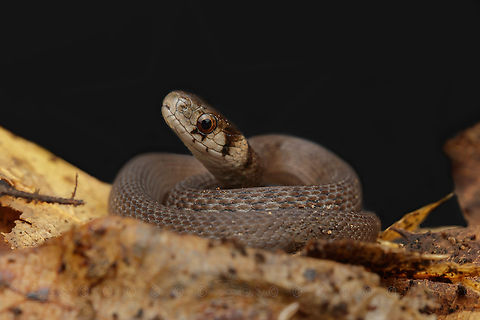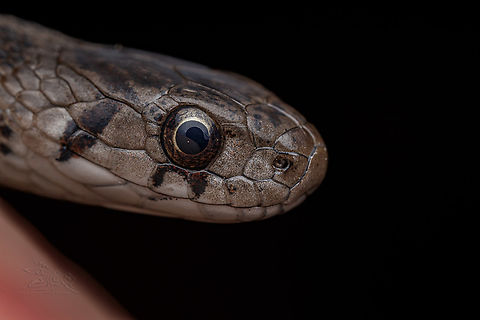
Appearance
Dorsally, "S. dekayi" is brown to gray with a lighter center stripe bordered by small black spots; ventrally, it is lighter brown or pink with small black dots at the ends of the ventral scales. Adults usually measure less than 12 inches in total length, but the record total length is 19+3⁄8 inches. The dorsal scales are keeled, and it has no loreal scale.
Naming
The specific name, "dekayi", is in honor of American zoologist James Ellsworth De Kay, who collected the first specimen on Long Island, New York, while the generic name, "Storeria", honors zoologist David Humphreys Storer.This is the only North American snake whose binomial is a double honorific – that is, both the generic name and the specific name honor people.

Habitat
"S. dekayi" is a prey item for larger snakes, large frogs and toads, birds, and many mammals including weasels.
Reproduction
Like other natricine snakes such as water snakes and garter snakes, "S. dekayi" is a viviparous species, giving birth to live young. Sexual maturity is reached at two to three years. Mating takes place in the spring, after snakes emerge from brumation. Between 3 and 41 young are born in late summer.![Midland Brown Snake The midland brown is a very mild mannered snake and usually attempts to escape first and foremost when encountered but may even play dead or flatten its body to appear larger. If picked up the snake may release a fowl smelling musk but will not bite you. These snakes are many times brought as gifts by cats and dogs to their unwary owners after a day of stalking in the flower bed. As all Georgia's non-venomous snakes, the midland brown is protected due to their assistance in pest control. Their diet consists of earthworms, slugs, snails insects and spiders.
They give birth to what appears to be live young [3-31] but technically they are not...they hatch inside the mother's body and the eggs are retained in the mother. DeKay,Georgia,Geotagged,Midland brown snake,Storeria dekayi,United States](https://s3.amazonaws.com/media.jungledragon.com/images/1780/22148_small.jpg?AWSAccessKeyId=05GMT0V3GWVNE7GGM1R2&Expires=1767225610&Signature=Xi3Uo6vsZX861FnEze7w9R346Aw%3D)
Food
"S. dekayi" primarily feeds on slugs, snails, and earthworms. In the southern extent of its region the snake usually preys predominantly on earth worms, however in the northern reaches of its range slugs are the predominant food source. It has specialized jaws that allow it to remove snails from their shells for consumption. Reports of other invertebrates in the diet of "S. dekayi" are more than likely the result of accidental ingestion rather than intentional feeding, in which one of these invertebrates may have adhered to a slug or other prey item being consumed.References:
Some text fragments are auto parsed from Wikipedia.